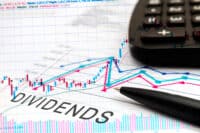
After the SEC’s scrutiny revealed money laundering violations and ESG deception, DWS agreed to settle two charges worth $25 million. Among the world’s top ten asset managers holding €859 billion AuM, DWS is majority-owned by Deutsche Bank, Germany’s largest commercial bank. Before 2018’s initial public offering (IPO) on the Frankfurt Stock Exchange, DWS was an integral part of the bank.
As a European mirror to BlackRock, DWS has been leveraging the environmental, social, and governance (ESG) framework to bring about the new era of stakeholder capitalism. What does the latest greenwashing conclusion reveal?
DWS’ Greenwashing Scandal Explained
In June 2022, DWS CEO, Asoka Wöhrmann, resigned. This was after a police raid on DWS headquarters launched by Germany’s SEC counterpart, BaFin. Desiree Fixler, former DWS chief sustainability officer, was among the first to bring the negative public spotlight.
She claimed that DWS misrepresented its 2020 annual report, falsely portraying the asset manager as having over half its assets, €459 billion, as “ESG integrated.” Although DWS initially denied the allegations, it all but confirmed them by drastically reducing the ESG weight the following year at only €115 billion.
In other words, DWS allegedly exaggerated or misled its clients by presenting companies as more environmentally friendly than they were. At the end of the line, consumers were misled into thinking they partook in sustainable products and services.
In the May-June 2023 Eurobarometer report, Germany is among the countries where environmentalism is a top priority. DWS has been supplying ESG demand, as 66% of Germans think business and industry are responsible for tackling “climate change.”
In conjunction with German BaFin, the SEC concluded that DWS engaged in false advertising.
“DWS advertised that ESG was in its ‘DNA,’ but, as the SEC’s order finds, its investment professionals failed to follow the ESG investment processes that it marketed,”
Sanjay Wadhwa, SEC’s enforcement division deputy director
Referring to significant ESG-asset bound shrinkage from 2020 to 2021, DWS responded by stating that “the weaknesses identified by the SEC are in relation to processes and procedures that the firm has already taken steps to address.”
The second settled enforcement action against DWS relates to failure to enforce proper anti-money laundering (AML) procedures.
“The SEC’s order finds that DWS advised mutual funds with billions of dollars in assets yet failed to ensure that the funds had an AML program tailored to their specific risks, as required by law,”
Gurbir Grewal, SEC’s enforcement division director
ESG As a Total Framework
Although ESG became the public spotlight following the UN’s Global Impact report in 2004, it took large financial institutions to make it relevant. Larry Fink, BlackRock CEO, has been widely credited for accomplishing this task as he pushed climate change as “a defining factor in companies’ long-term prospects.” in 2018.
Environmental, social, governance (ESG) is closely tied to stakeholder capitalism, pushed by the World Economic Forum (WEF). While stakeholder capitalism redefines capitalism as an expansion of the investing envelope outside shareholders into communities, customers, employees, and suppliers, ESG is the metric to measure stakeholder capitalism.
In other words, ESG attempts to quantify corporate commitment to environmentalism and beyond. Numerous ESG rating agencies give companies their score: S&P 500 Global ESG Solutions, Bloomberg ESG, Sustainalytics, MSCI ESG Research, and others. In turn, companies receive preferential access to capital and loans.
However, some view this framework as a trojan horse that goes outside the bounds of environmentalism into politics, as corporate-government fusion that circumvents established political processes. Among business heavyweights, Elon Musk has become ESG’s harshest critic.
The term “woke” here isn’t related to environmentalism but to social governance, the S in ESG. Specifically to enforce the tagalong ideology dubbed DEI (diversity, equity, and inclusion). This led Anheuser-Busch to commit a marketing blunder with its Bud Light beer campaign, resulting in ~30% loss of US sales, or around $400 million.
As ESG ramped up to an all-encompassing framework beyond sustainability, even Larry Fink distanced himself.
“I don’t use the word ESG any more, because it’s been entirely weaponized … by the far left and weaponized by the far right,”
Larry Fink, BlackRock CEO
Even before that statement in June, Fink noted a $4 billion worth of ESG backlash in January. Although ESG is now primarily associated with the circumvention of politics via corporate power, Fink still believes that “decarbonization” and “social issues” must become integral to corporate governance.
In the meantime, 15 US states have begun enacting some form of anti-ESG laws as a legislative backlash against ESG short-circuiting traditional flows of power.
This article originally appeared on The Tokenist
Thank you for reading! Have some feedback for us?
Contact the 24/7 Wall St. editorial team.





